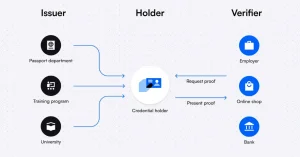
In this article, I’ll briefly discuss the basics of accounting ethics. To avoid being called out for dishonesty, keep your demeanor professional. For example, if you’re an accountant, it’s not acceptable to be drunk or to drink too much. It’s also inappropriate to lie or defraud a client. These are all important ethical considerations. But how can you stay on top of these? You’ll want to follow these ethical standards no matter what your job role may be.
Accounting ethics has roots in the 1400s, but the ethical issues that exist today are still as relevant as they were then. Inaccurate or dishonest financial statements hurt society as a whole. Falsifying financial statements hurts company investors, tax payers, and the people who work for the company. A lack of ethical behavior on the part of an accountant affects everyone, including the person who is doing the falsifying. That’s why it’s important to understand the broader picture.
The principles of accounting ethics are based on a set of standards that guide and govern decisions made in the field. These standards govern the behavior of people associated with the profession, and prevent abuse of those powers. A good accounting ethic minimizes legal liability and promotes a professional environment. Fortunately, there are online MBA programs that cover the basics of accounting ethics. If you’re interested in learning more about accounting ethics, check out UWF’s online MBA program.
Despite the many rules and regulations surrounding accounting, a blunder is bound to occur. It is impossible to follow them 100% of the time, so you should keep your head. In addition, the right code of conduct will outline what kind of behavior is acceptable and what consequences will be given if you break these rules. Once you’ve made a mistake, make sure to correct it as soon as possible. Don’t be afraid to ask for help if you’re unsure of a particular situation.
As with all professional disciplines, accounting ethics education has come a long way. While the field itself has evolved, the role of accounting ethics educators should be a central goal of their work. In the meantime, educators should build on this long tradition of ethical education and continue to strive for the most effective ways to teach this crucial concept. Ultimately, accounting educators should strive to influence students’ ethical behavior as they begin their careers. The benefits of accounting ethics education are enormous for the profession and society.
In addition to teaching students about the principles of ethical behavior, accounting educators should teach their students to identify ethical dilemmas and apply ethical reasoning. An ethics education program should include core values of objectivity, independence, and integrity. The ethics education toolkit is a great resource for educators who wish to teach ethics to their students. It also includes sample course outlines, teaching notes, case studies, and videos of ethical dilemmas. The ethics education toolkit also provides resources for teachers to integrate the subject matter of accounting ethics into the curriculum.



